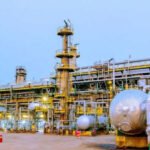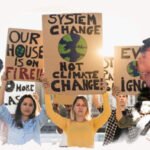President Bola Tinubu recently missed an opportunity to address the recent claims that his administration has resumed the payment of petroleum subsidy.
Development Diaries reports that the Nigerian leader, during the Special World Economic Forum in Riyadh, Saudi Arabia, Sunday, said that the country would have gone bankrupt if his administration had not discontinued fuel subsidy payments.
But former Governor of Kaduna State, Nasiru El-Rufai, recently asserted that over eight trillion naira may have been spent by the Tinubu administration to subsidise the pump price of premium motor spirit (PMS).
El-Rufai, who said this while delivering a lead paper on the occasion of a capacity-building workshop in Maiduguri, the Borno State capital, noted that in the course of implementing subsidy removal, the government realised that the subsidy had to be returned.
Similarly, in March 2024, we reported that the Managing Director of Pinnacle Oil and Gas Limited, Robert Dickerman, claimed that Nigeria was paying about one trillion naira monthly for petrol subsidy.
Also, the World Bank had disclosed in its Nigeria Development Update for December 2023 that the Nigerian National Petroleum Corporation (NNPC) Limited was not transparent about the financial gains from fuel subsidy removal.
Therefore, there is an urgent need for the Nigerian leader to respond to these claims that the government of Nigeria has resumed fuel subsidy payments.
Besides, how has this policy of subsidy removal really benefitted Nigerians? Recall that in July 2023, the federal government revealed that it had saved N400 billion within the four weeks following the implementation of the policy.
But citizens have yet to hear from the government on details of how much has been saved in ten months of implementing this subsidy removal.
The government has a legal responsibility to ensure that the savings from the removal of fuel subsidy are spent solely for the benefit of the 133 million poor Nigerians bearing the brunt of the removal.
Nigerians have the right to know how the savings are spent. Publicising the specifics of how the savings were used will encourage accountability and openness while lowering the possibility of corruption in the money management process.
The removal of petroleum subsidy has made more Nigerians susceptible to social injustice and poverty until the government is open and accountable to the people for how it uses the money saved.
And the state of trust in the Nigerian government would undoubtedly be compromised if transparency regarding the details of spending on monies recovered from the removal of fuel subsidy is lacking.
Transparency is the cornerstone of trust in governmental institutions, and without clear communication and accountability regarding such significant financial matters, citizens are left in a state of uncertainty and suspicion.
Development Diaries therefore calls on President Tinubu to provide transparent information on funds saved from fuel subsidy removal, and remind him to urgently respond to claims that his government has resumed fuel subsidy payments.
Photo source: Presidency Nigeria






